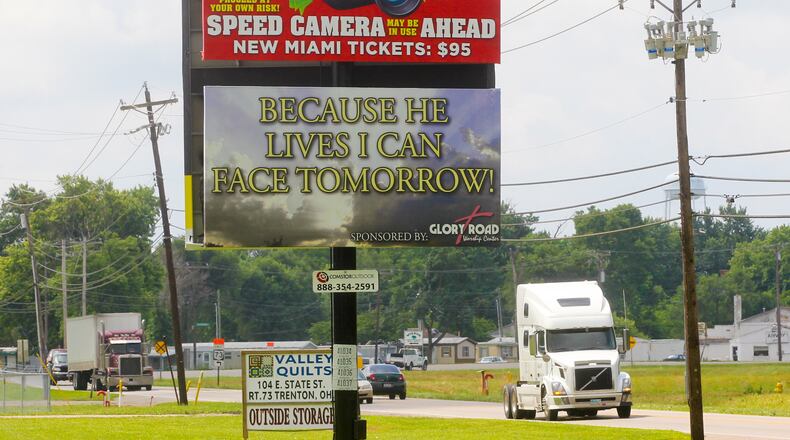James Englert, the attorney handling the village’s speed camera lawsuit, said it has not determined yet whether it will take the 12th District’s decision this week on sovereign immunity to the Ohio Supreme Court. However, he said eventually it wants to appeal what’s at the heart of the case, whether former Judge Michael Sage’s decision that the old speed camera case was unconstitutional is correct.
“I’m not talking about going forward on the sovereign immunity issue where we just lost,” Englert said. “I’m talking about the finding by Judge Sage that it was a due process violation.”
Up until now, the two sides have been fighting over pieces of the case, namely whether the case could be certified as a class action — meaning thousands of other motorists who have been cited could join on and seek a legal remedy — and whether the village as a governmental entity is immune from litigation.
RELATED: New Miami not immune in speed camera lawsuit
New Miami challenged the class certification in the 12th District and the high court but lost in both venues. This week, the 12th District handed the village another defeat on the immunity issue.
“The action seeking restitution by plaintiffs ‘is not a civil suit for money damages but rather an action to correct the unjust enrichment of’ New Miami,” Judge Michael Powell wrote for the unanimous court. “As the Ohio Supreme Court plainly held, ‘A suit that seeks the return of specific funds wrongfully collected or held by the state is brought in equity’ and ‘is consequently not barred by sovereign immunity.’”
Englert said there have been some recent court cases that bolster the constitutionality of speed camera programs, so he believes they have a decent shot at winning, eventually. As for settling the case?
“We have tried a couple times on it, on what we thought was a reasonable settlement,” Englert said. “But no, our discussions so far have not been fruitful, and I can’t see a way that they would be at this point.”
Josh Engel, one of the speeders’ attorneys, said New Miami should stop wasting taxpayers’ money on legal fees — $300,000-plus so far — and just settle it. He said they are fully aware the cash-strapped village can’t just hand over a $3 million check.
“People who want to settle cases can find creative solutions to various problems,” Engel said. “If their lawyers are just looking for an excuse to keep churning this file and run litigation costs up, they’ll always find another excuse. If they want to settle this case, we can find a way to settle this case.”
The village has said it was sued and must defend itself, and it feels the program was legal.
In order to get the constitutional question before the appellate courts, Butler County Common Pleas Judge Michael A. Oster, Jr. must issue a final judgment, which would be delayed again if the village decides to take the immunity question to the Supreme Court.
About the Author
